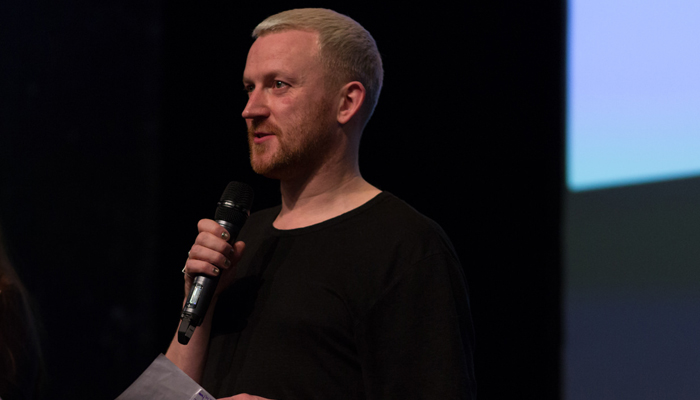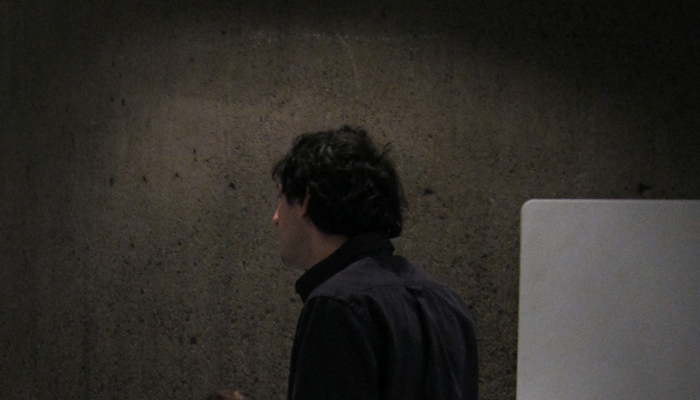Is a survey a process of listening?
Is a survey a process of listening?
Who
Barry Esson works for Arika. Jay Sanders is a Co-Curator of the 2012 Whitney Biennial.
What
A short chat about what we (Arika) might be trying to do with our program for the Biennial.
Why
For e.g. here’s some things we’re interested in. Music and listening have to deal with the material and the immaterial – with how material is handled and how that material relates to concepts. Listening is a durational process, too – it happens and unfolds over time. We are quite
Readsuspicious of experience, unsure that we an trust what we think or feel: cognitive neuroscience is unlocking the physical basis of personal experience (there is no you that experiences anything); neoliberal capitalism has locked down social experience (it hands us our language and feelings on a plate). But so if thought can be constructed, can listening organize material so as to construct thought in a useful manner: what can it help us think about, and does it do this in ways specific to listening?
All of which is to say: we think listening is a useful non-discursive mode of thought. It is a cognitive experience that constructs or organises our thinking. The most exciting performing artists to us today understand this, and set up situations in which we as listeners are not lectured or invited to talk about a set of ideas (or philosophical concepts or notions about the world), but in which we naturally start to think in line with or approach these notions as a result of the cognitive experience of listening. I.e.: listening involves us in thought, it can be allegorical (it reaches out to an idea), persuasive and a distinct mode of thought.
Documentation
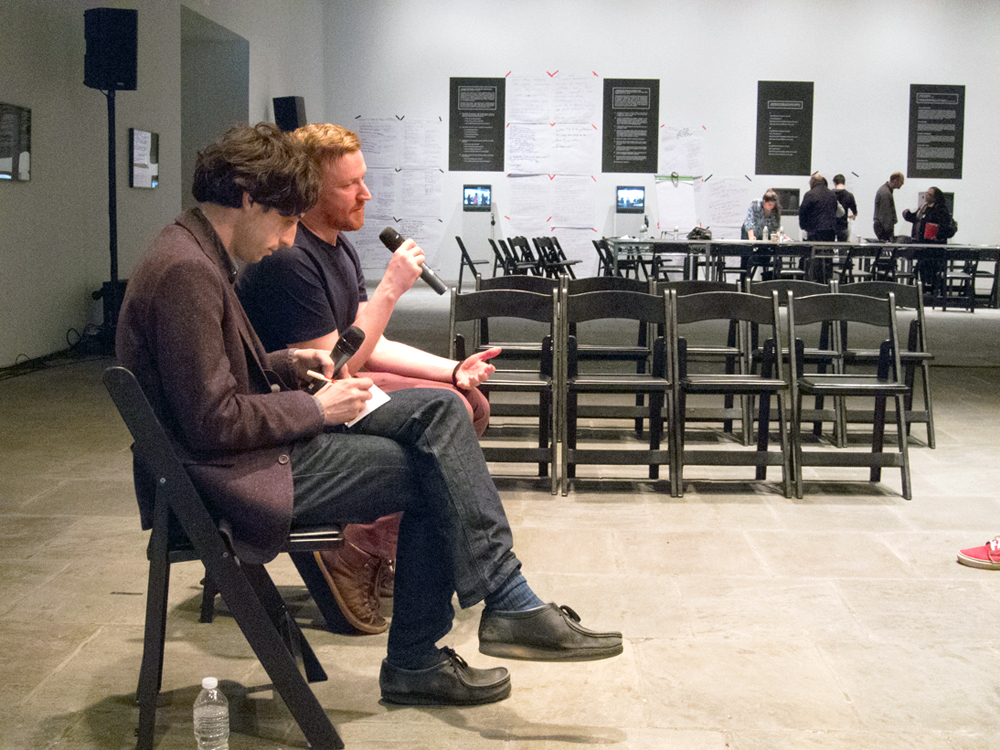
▴ Credit: Bryony McIntyre

▴ Credit: Bryony McIntyre
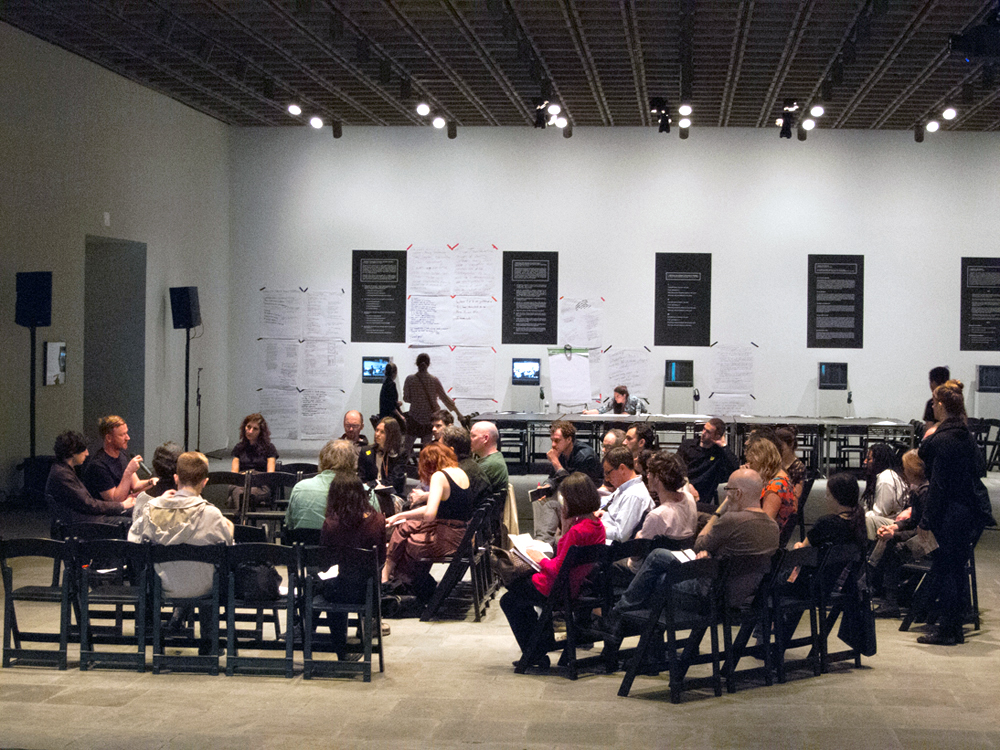
▴ Credit: Bryony McIntyre
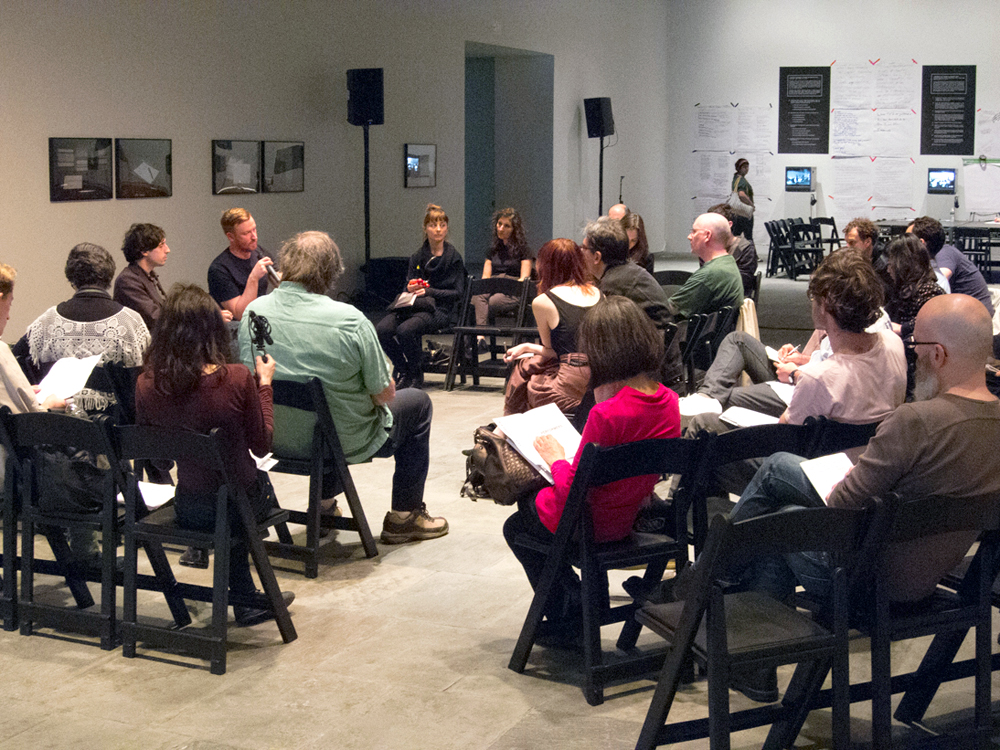
▴ Credit: Bryony McIntyre
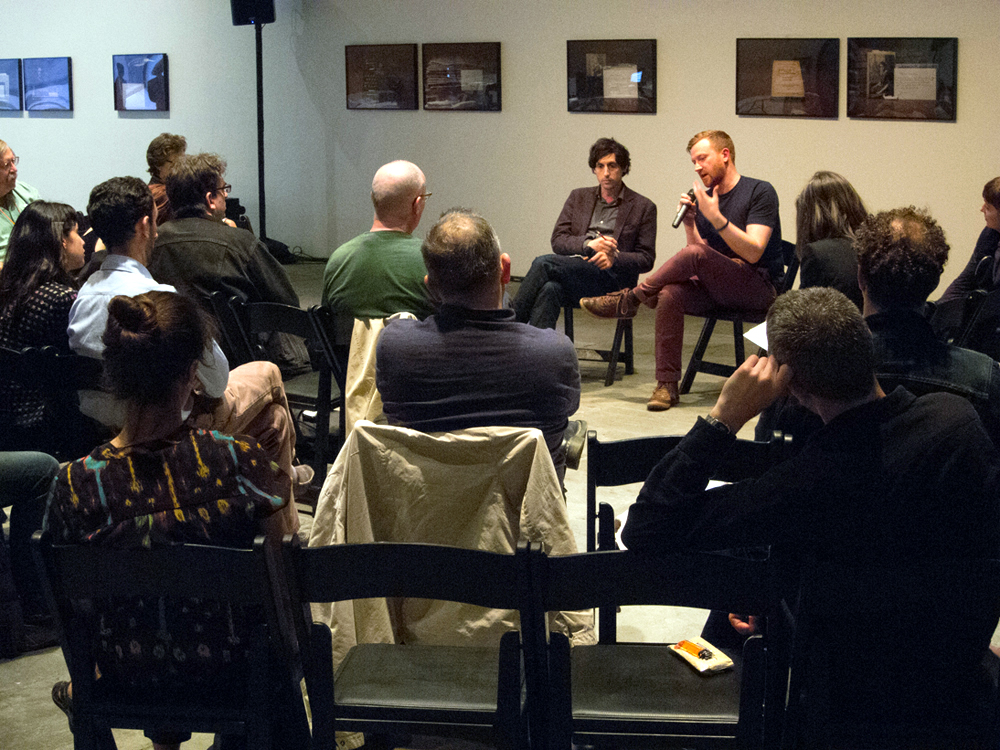
▴ Credit: Bryony McIntyre

